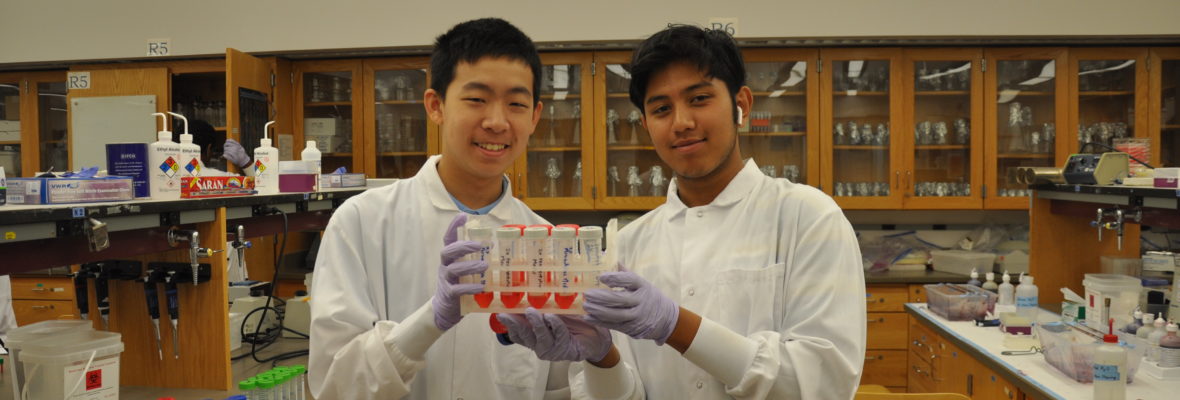In the summer of 2019, the MLSC supported the Health Resources in Action’s LEAH (Leaders through Education, Action, & Hope) Knox Scholars Program, an MIT-based biomedical research training program that prepares students for internships. Funding supports hands-on lab experience and mentorship for low-income high school students of color providing a foundation for science education in college and beyond. The training program served a cohort of 23 students from eleven different high schools, while 22 students from the 2018 cohort participated in paid internship opportunities with life sciences companies and research institutions.
With the funding from MLSC and the Amgen Foundation, the program was able to build upon the program’s core funding from the Science Education Partnership Award (SEPA) of the National Institutes of Health (NIH) to expand its training cohort by eight additional students and provide internship stipends. First-year students received a five-week summer biomedical research learning opportunity and nearly all of the second-year LEAH Knox Scholars earned paid internship opportunities with labs throughout Boston and Cambridge.
The LEAH Project was able to recruit, hire, train, and support the high school students from Boston, Cambridge, and Everett that made up the 2019 cohort of LEAH Knox Scholars Program. The program provided the cohort with more than 40 hours of pre-lab placement orientation, leadership, team building and career and college readiness workshops, alongside 130 hours of learning basic lab skills. Additionally, 14 LEAH Knox Scholars, who had completed the lab skills training at MIT in 2018, had the opportunity to become LEAH Mentors and join the LEAH Project’s school-year STEM peer leadership program, providing additional STEM education and tutoring help to their elementary-aged peers in after school programs.
Following orientation, first-year students spent their time identifying unknown bacteria from the Charles River. The youth extracted water samples from the river and spent time with MIT instructors learning basic research and lab skills in order to identify the bacteria. Through this process of discovery, the LEAH Knox Scholars gained numerous skills, including safe and ethical conduct of scientific research, the handling of bacteria, DNA purification, recombinant DNA techniques, DNA sequence analysis, and science presentation skills. All of these skills and competencies led to increased independence and confidence in their lab skills.
The LEAH Project also planned five STEM-focused events, deepening partnerships with local community labs, so youth could have the opportunity to practice, maintain, and build upon the skills they gained during their lab training at MIT. Opportunities included visits to Novartis and Biogen labs that built upon the skills that LEAH Knox Scholars and a Women in STEM panel at Sanofi Genzyme offering the opportunity to hear from women in STEM careers ranging from biomedical science and pharmaceuticals to engineering and data analysis.
Second-year Knox Scholars built upon their first summer MIT coursework through paid lab placements in professional, academic, and corporate laboratories. Knox Scholars earned placement at Vertex Pharmaceuticals, Massachusetts General Hospital, UMass Boston, the Broad Institute, MIT, and the Dana Farber Cancer Institute. Second-year internships bring the biomedical summer lab experience to completion as youth utilize the lab skills learned from the first summer in real-life experimentation and research in actual working labs. MLSC’s support and partnership with the LEAH Project continue to make these experiences for young scientists possible.
